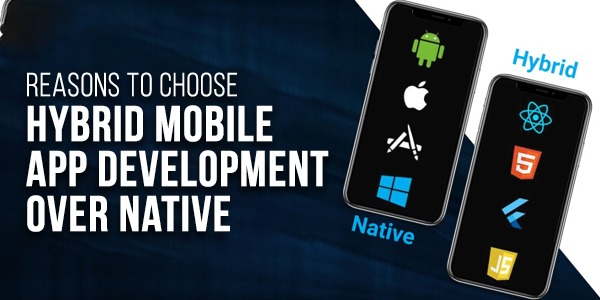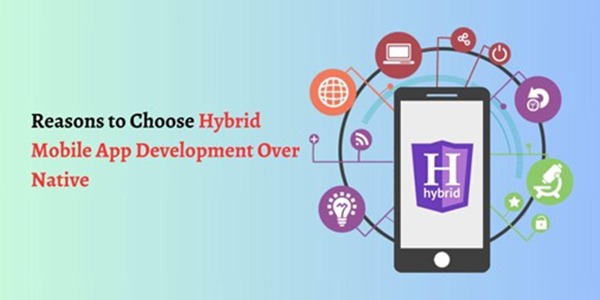
Mobile applications are an excellent medium for many organizations and businesses to serve customers online and reach out to potential users. This helps them enhance and diversify market coverage and, at the same time, increase ROI. Consequently, scaling startups and well-established companies seek an adaptive mobile app development methodology for faster and better outcomes.
Native and hybrid are two of the approaches used to build custom mobile apps. Depending on the project requirements, businesses can hire a native or hybrid app development company accordingly. However, it may be challenging for some of the companies to select a suitable method of development. Hence, comparing native and hybrid apps can provide more clarity on how these methodologies vary from each other and offer unique benefits for your business.
Table of Contents
Comparing Native, Web, And Hybrid Apps: A Comprehensive Analysis
We will examine the key differences among native, web, and hybrid applications in this section. This will help you choose which kind of application to create for your company.
Native App Development: Android Or iOS? Make A Choice!
The native apps are the mobile applications developed specifically for an operating system, either Android or iOS. They use technologies designed for a given platform and compiled with the native APIs and programming language.
Hence, these applications can be customized to adapt to the unique features of the devices they are running on without hassle or additional effort. Furthermore, the primary benefit of an app developed with a native app development approach is faster performance and full utilization of device power efficiently.
Hybrid App Development: Develop Android And iOS App Simultaneously
We can download and run a hybrid app on mobile platforms like iOS and Android. The difference between native and hybrid apps is the development approach. In building a hybrid app, web technologies (HTML5 and JavaScript) are used.
Wrapped in a mobile app using WebView, these applications are rendered within a native app shell, combining the power of both native and web technologies. With API integration and third-party libraries, they also have access to the built-in capabilities of a device.
Moreover, the most common way of building hybrid applications is through cross-platform frameworks like React Native, Ionic, Flutter, and Xamarin.
Web App Development: Need A Browser To Access
The reason why it is important to understand web applications is because they often get confused with hybrid applications due to the use of web technologies for app development. However, there is a vast difference between the two: users need a browser to access the web applications.
Consider web-based applications as interactive and optimized websites written in JavaScript and HTML5. Hence, the most important element here is achieving browser compatibility with multiple browsers, such as Chrome or Safari.
Gmail, Canva, Google Docs, Amazon, and Airbnb are some of the widely used and known web apps, having engaging features and functionality similar to mobile apps. Thus, you can also gain the multiple benefits these applications have to offer, including reduced maintenance and support required, fewer requirements and efforts needed, simplified architecture, and low-budget requirements.
Although, you must consider the disadvantages of developing web applications that can put your project on the back burner. The dependency on how effectively a web app is compatible with the browser it is running on can be a demerit. It can affect the application’s performance and make it slower since the Internet speed is also one of the major factors playing a role here. Also, unavailability in app stores can hinder its ability to reach out to potential customers.

Why Choose Hybrid App Development? Its Advantages Over Native App Development Approach
One of the primary reasons companies choose to use the hybrid app development technique is its ability to function across several platforms. Developers can use a single JavaScript codebase to create programs that function across several operating systems, such as Windows, iOS, and Android. It can save developers time, money, and effort because they do not have to create numerous programs for different platforms.
Another advantage of hybrid app development is the code reusability and shareability factor, enabling developers to reuse and share code across multiple platforms. This reduces the development time, enhancing efficiency and productivity. Hence, you can deploy your app and feature updates to the market faster, gaining a competitive advantage.
Apart from the development, it is easy to maintain hybrid applications as well, mainly due to the use of a cross-platform app development framework. The pre-built libraries and API integration make app maintenance more accessible and less time-consuming. In this approach, the changes made to the codebase will reflect across all platforms.
How Does Native App Development Help You Achieve Enhanced Customer Experience?
The fundamental distinction between native and hybrid mobile apps is that the former are created specifically for Android and iOS platforms. On the other hand, hybrid apps are developed, keeping both platforms under consideration.
Native apps make use of technology created especially for a single operating system. For example, Objective-C or Swift are used to write iOS apps, whereas Java or Kotlin are used to build Android apps. SDKs provided by an operating system are used to create native apps. For example, the iOS SDK (iOS Software Development Kit) is used to create apps for iPhones, whereas the Android SDK is used to develop apps for Android devices.
Native apps are the fastest and most dependable in terms of user experience because they are created using a highly customizable app development technique. All of the device’s features, including the microphone, camera, GPS, device storage, and more, can be used with native apps with ease.
The disadvantage, however, is related to a lengthy process of development since both apps are developed in separate environments. This also means the time to maintain the application will also be higher, increasing the complexity and app development cost. Ultimately, you will have to hire a separate team to develop an application for both platforms. For native app development across several platforms (i.e., iPhones and Android), a larger budget is therefore required.
In Summary:
In today’s fast-paced corporate world, it is imperative to be able to keep up with the growing competition. Developers can only achieve this with an accurate data-driven approach implemented in the right direction. Therefore, it is important to understand the difference between hybrid and native app development approaches so you can make informed decisions.
Which one is better among native and hybrid apps? Since the answer to this question depends only on the specifics of your project and app idea, there is no right or incorrect response. Therefore, to maximize the benefits of this strategy, you must have a complete understanding of hybrid app development services, including frameworks, technologies, and other needs. This will assist you in making sure the built application can produce the intended outcomes.

 About the Author:
About the Author:












What a comprehensive breakdown of the nuances between native and hybrid mobile app development! This article does an excellent job of laying out the advantages of hybrid app development over native, particularly in terms of cross-platform functionality, code reusability, and ease of maintenance. In today’s competitive digital landscape, understanding the best approach for your mobile app development is crucial, and this piece provides invaluable insights to help businesses make informed decisions. Whether it’s leveraging the full capabilities of native apps or optimizing efficiency through hybrid development, this article offers a roadmap for success in the ever-evolving mobile ecosystem. Great job on shedding light on such a critical aspect of modern app development!
Welcome here and thanks for reading our article and sharing your view. This will be very helpful to us to let us motivate to provide you with more awesome and valuable content from a different mind. Thanks again.